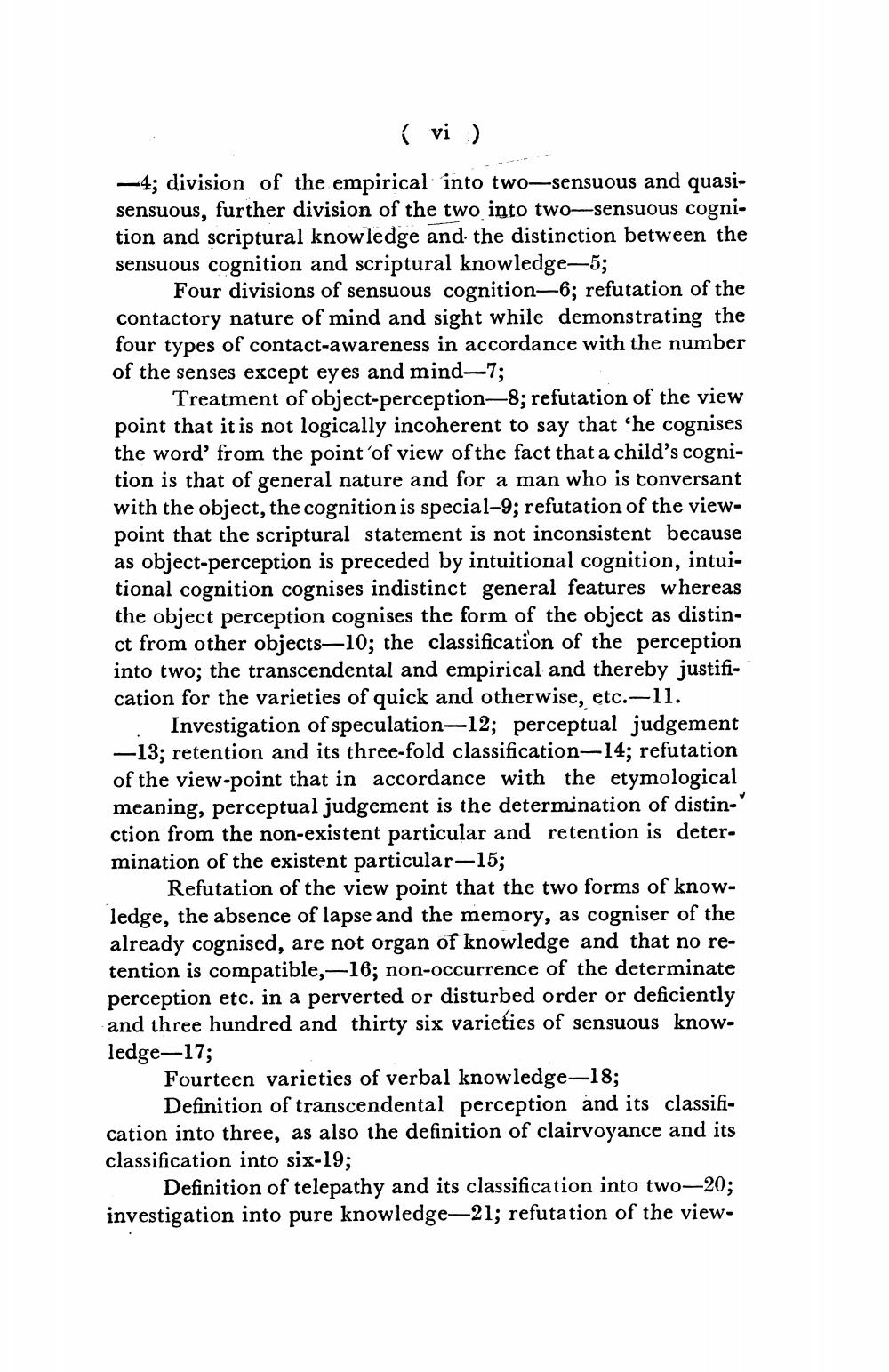Book Title: Jaina Tarka Bhasha Author(s): Dayanand Bhargava Publisher: Motilal Barasidas Pvt Ltd View full book textPage 8
________________ (vi) -4; division of the empirical into two-sensuous and quasisensuous, further division of the two into two-sensuous cognition and scriptural knowledge and the distinction between the sensuous cognition and scriptural knowledge—5; Four divisions of sensuous cognition-6; refutation of the contactory nature of mind and sight while demonstrating the four types of contact-awareness in accordance with the number of the senses except eyes and mind-7; Treatment of object-perception—8; refutation of the view point that it is not logically incoherent to say that "he cognises the word' from the point of view of the fact that a child's cognition is that of general nature and for a man who is conversant with the object, the cognition is special-9; refutation of the viewpoint that the scriptural statement is not inconsistent because as object-perception is preceded by intuitional cognition, intuitional cognition cognises indistinct general features whereas the object perception cognises the form of the object as distinct from other objects—10; the classification of the perception into two; the transcendental and empirical and thereby justification for the varieties of quick and otherwise, etc.-11. Investigation of speculation-12; perceptual judgement -13; retention and its three-fold classification-14; refutation of the view.point that in accordance with the etymological meaning, perceptual judgement is the determination of distinction from the non-existent particular and retention is determination of the existent particular-15; Refutation of the view point that the two forms of knowledge, the absence of lapse and the memory, as cogniser of the already cognised, are not organ of knowledge and that no retention is compatible,-16; non-occurrence of the determinate perception etc. in a perverted or disturbed order or deficiently and three hundred and thirty six varieties of sensuous knowledge-17; Fourteen varieties of verbal knowledge—18; Definition of transcendental perception and its classification into three, as also the definition of clairvoyance and its classification into six-19; Definition of telepathy and its classification into two-20; investigation into pure knowledge-21; refutation of the viewPage Navigation
1 ... 6 7 8 9 10 11 12 13 14 15 16 17 18 19 20 21 22 23 24 25 26 27 28 29 30 31 32 33 34 35 36 37 38 39 40 41 42 43 44 45 46 47 48 49 50 51 52 53 54 55 56 57 58 59 60 61 62 63 64 65 66 67 68 69 70 71 72 73 74 75 76 77 78 79 80 81 82 ... 198
